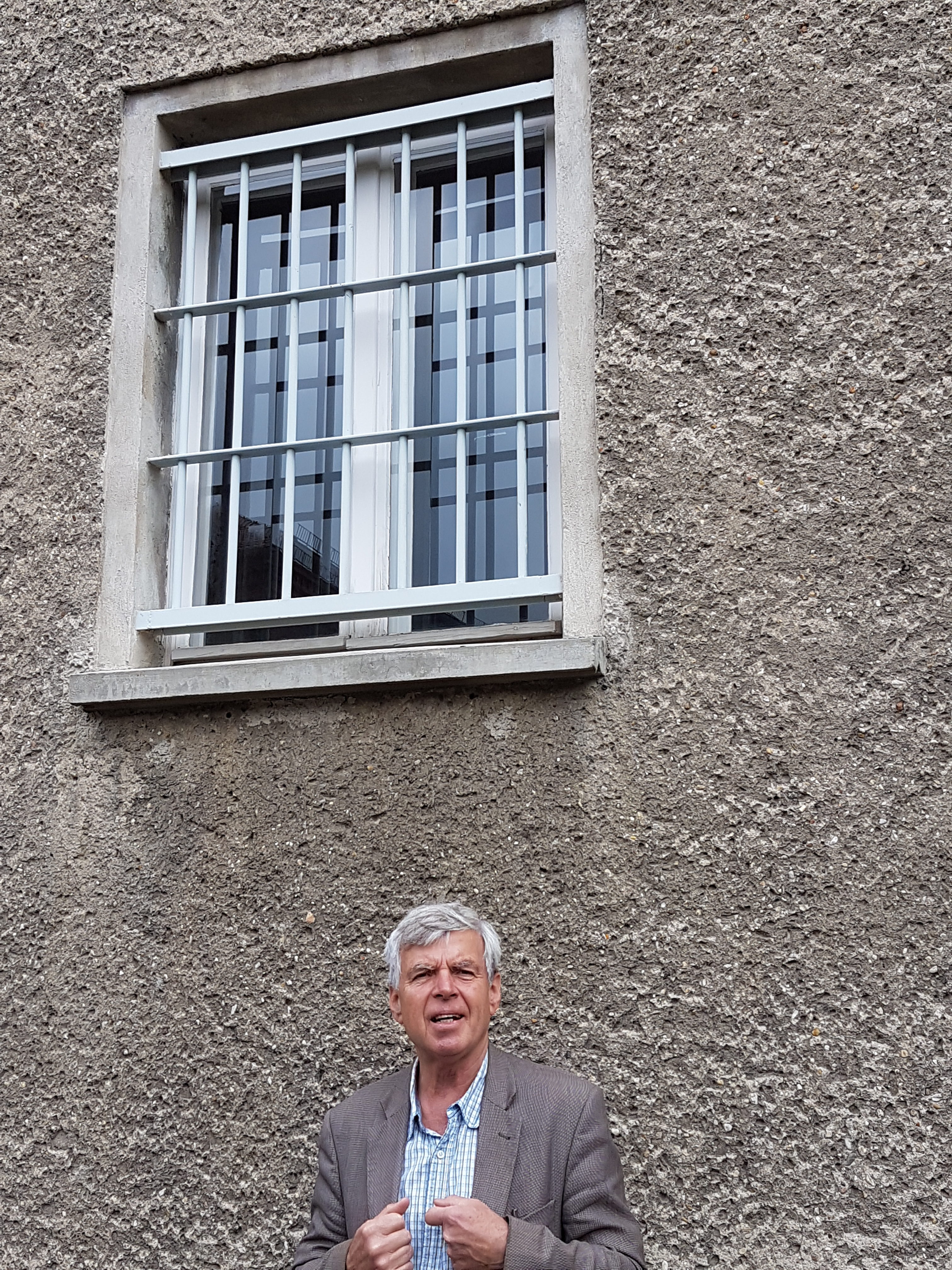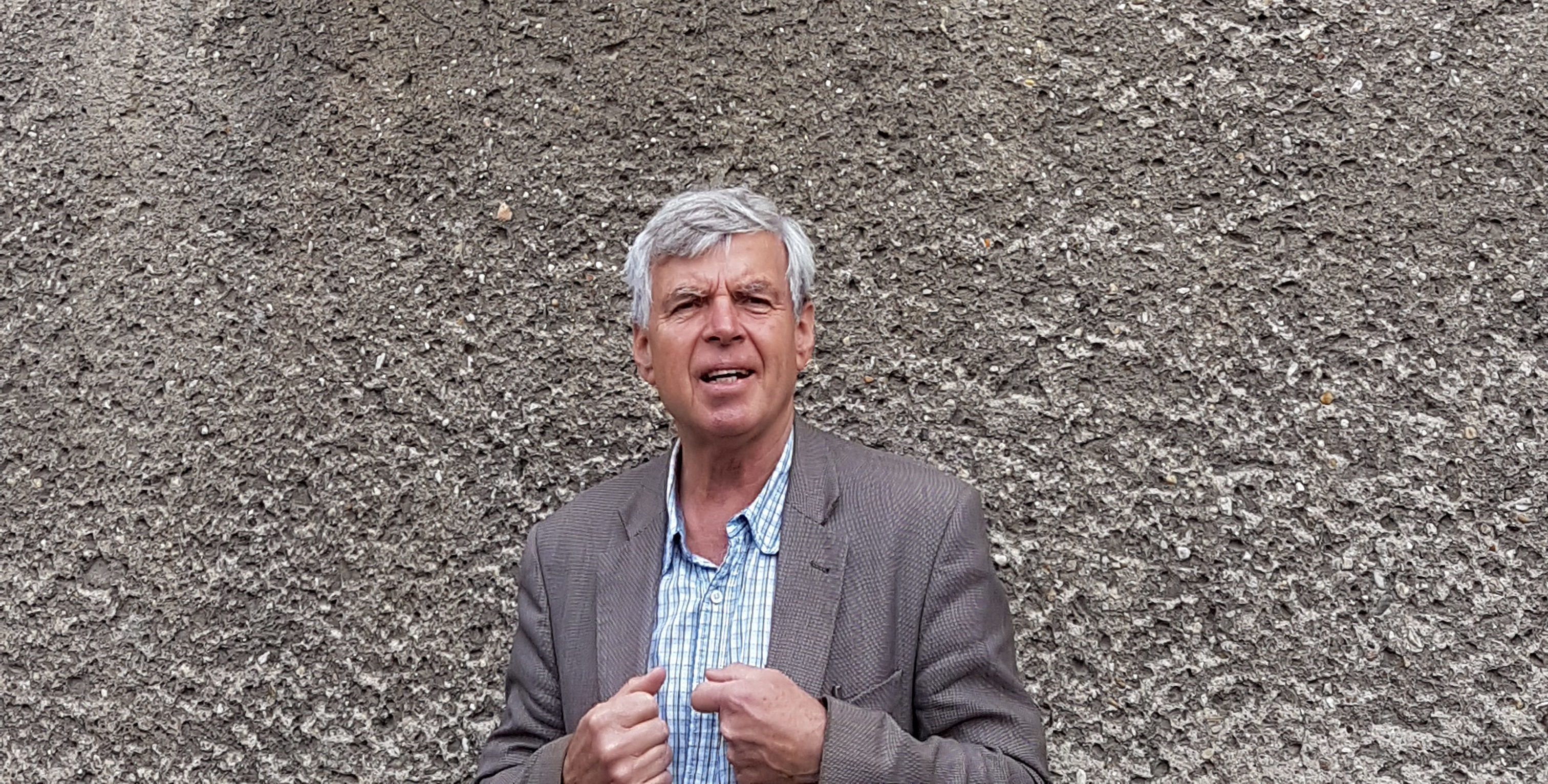

Gilbert is a former inmate of the infamous Stasi prison at Hohenschönhausen in East Berlin. He was always a quite outspoken critic of the politics in East Germany and a member of the church, which first got him excluded from the FDJ (GDR youth organisation) and later from his desired course at university (translation). Later he started to work on a book about punks that he wanted to smuggle into the West for publication. Punks were labelled degenerate and criminal by the communist authorities, and the scene was infiltrated and harassed by the Stasi. Thus, the Stasi also started to observe Gilbert 24/7, which he did not realise at the time. After the fall of the wall, he was able to access his surveillance protocols which are absurd in their detail. “From early morning till evening it was recorded exactly by the minute what I was doing. They were trained professionals.” Finally, in March 1985, he was arrested at his work by 4 men who asked him to come along “to clarify an issue”. He was then transported in a van without windows so that he did not know that he was transported to the Stasi prison at Hohenschönhausen, where he was then incarcerated and interrogated for 7 months.
He was forbidden to make any form of noise in his cell. In case he did, he was screamed down immediately by a guard at his cell door. “They were like machines, like robots”. While during the early years of the GDR, inmates were exposed to physical violence as well, the authorities had switched to psychological methods of terror. Many were kept in isolation, forbidden to do sport, and were only communicating with others through the toilet tubes. Later he was transferred to another prison in Cottbus where he had to assemble parts of photo cameras. But he did not want to be extradited to the West like many other political prisoners. “I had my roots in East Germany and its society and I wanted to stay.” Thus, he was constantly insulted as a communist pig or red sock by other prisoners who could not wait to be sold to the West. In 1986 he was released and stayed in the GDR.
For Gilbert, the opening of the wall was not the great experience of freedom, that it was for many others. He only saw it on TV and did not rush to cross over to the West. “From the beginning on, I had the feeling that what would happen now would not be just.” He felt that West Germans were condescending towards East Germans and he perceived many procedures, such as the distribution of welcome money as humiliating. “This might also have to do with the fact that in my heart, I was a romantic leftie.”


Kommentare